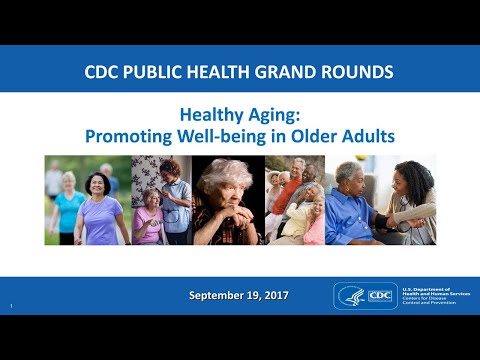Why Is Oral Health Important in the Elderly?
Contents [show]
It’s no secret that Oral Health is important for everyone, but it becomes even more crucial as we age. Poor oral health can lead to a number of problems, including pain, infection, and difficulty eating and speaking.
There are a number of reasons why oral health is so important in the elderly. For one, our mouths are home to a wealth of bacteria, many of which are beneficial. However, as we age, we become more susceptible to gum disease and other conditions that
Checkout this video:
The Importance of Oral Health in the Elderly
Oral health is important at every stage of life, but it becomes even more vital as we age. The elderly are particularly susceptible to a number of dental and oral health problems which can lead to pain, infection, and in severe cases, hospitalization.
Good oral hygiene is essential in the prevention of these problems, yet many seniors fail to take proper care of their teeth and gums. In some cases, this is due to poor physical dexterity or declining vision. In others, it may be the result of dementia or other cognitive impairments. Whatever the cause, it’s important to be aware of the risks and take steps to ensure that your elderly loved ones are keeping their mouths healthy.
Here are just a few of the reasons why oral health is so important in the elderly:
· Gum disease: Gum disease is the leading cause of tooth loss in adults over the age of 35. It is also a risk factor for other serious health problems such as heart disease, stroke, and diabetes.
· Dental decay: Dental decay is another major problem for seniors. It can lead to pain, infection, and tooth loss.
· Oral cancer: Oral cancer is relatively rare in seniors, but it does occur more often in those who smoke or have a history of excessive sun exposure. Early detection is crucial for successful treatment, so it’s important to see a dentist regularly for checkups.
· Dry mouth: Dry mouth is a common problem among seniors that can lead to difficulties with chewing and swallowing. It can also make you more susceptible to dental decay and infection.
The Link Between Oral Health and Overall Health
There is a strong link between oral health and overall health. The mouth is full of bacteria, many of which are harmless. However, some bacteria can cause infections, such as tooth decay or gum disease.
Good oral hygiene habits, such as brushing your teeth twice a day and flossing regularly, can help remove these harmful bacteria and prevent infection. Poor oral health can lead to other health problems such as bad breath, tooth loss, and difficulty eating.
Oral health is especially important in the elderly because they are more likely to have chronic conditions that can affect the mouth, such as diabetes or Alzheimer’s disease. They may also take medications that can cause side effects, such as dry mouth or increase the risk of cavities.
Regular dental checkups and cleanings are important for maintaining good oral health. Your dentist can identify any problems early and recommend treatment to help prevent more serious problems from developing.
The Impact of Poor Oral Health in the Elderly
Poor oral health can have a significant impact on the elderly. It has been linked to an increased risk of pneumonia, for example. In addition, research has suggested that poor oral health may be a risk factor for dementia.
Oral health is important for overall health and well-being. The mouth is the gateway to the body and can provide clues about overall health. For example, oral symptoms can be early warning signs of diabetes.
There are several reasons why oral health may decline in the elderly. Poor dental hygiene, for instance, can lead to an increase in cavities and gum disease. In addition, many older adults take medications that can cause dry mouth, which can lead to tooth decay. Additionally, many older adults have chronic medical conditions that make it difficult to care for their teeth properly.
There are several things that can be done to improve oral health in the elderly. Good dental hygiene is essential. Brushing twice a day and flossing daily can help remove plaque and prevent cavities and gum disease. In addition,older adults should visit the dentist regularly for checkups and cleanings.
The Cost of Poor Oral Health in the Elderly
Dental health is an important part of overall health and well-being for people of all ages. Although good oral hygiene habits are established during childhood, many adults do not practice proper dental care and end up experiencing tooth decay, gum disease, and other dental problems.
Oral health is especially important in the elderly because poor oral health can lead to a number of other health problems. For example, gum disease has been linked to heart disease, stroke, and diabetes. Furthermore,poor oral health can make it difficult to eat a nutritious diet and can lead to malnutrition.
The cost of poor oral health is not only physical; it is also financial. Dental problems can be expensive to treat and often require costly dental procedures such as crowns, bridges, or implants. In addition, the pain and discomfort associated with dental problems can lead to lost work days and decreased productivity.
Taking care of your teeth and gums is important at any age, but it is especially crucial for seniors. Brushing twice a day, flossing daily, eating a healthy diet, and visiting the dentist regularly can help prevent many oral health problems.
The Benefits of Good Oral Health in the Elderly
Good oral health is important at any age, but it’s especially important for seniors. That’s because older adults are more likely to have chronic medical conditions that can impact their oral health. They’re also more likely to take medications that can cause dry mouth, which can lead to tooth decay and gum disease.
Poor oral health can have a big impact on your overall health. It can cause pain and make it hard to eat, which can lead to malnutrition. It can also increase your risk of developing pneumonia.
Seniors who have good oral health are less likely to experience these problems and more likely to enjoy a higher quality of life. There are many things you can do to keep your mouth healthy as you age, including:
– Brushing and flossing every day
– Seeing your dentist regularly
– Eating a healthy diet
– Quitting smoking
The importance of regular dental visits
The elderly population is at an increased risk for oral health problems due to a variety of factors, including decreased saliva production, dry mouth, and tooth loss. These problems can lead to an increased risk for tooth decay, gum disease, and other oral health issues. Regular dental visits are important for maintaining good oral health in the elderly. During these visits, the dentist can check for early signs of oral health problems and provide treatment to prevent these problems from becoming more severe.
The impact of diet on oral health
Most people are aware of the importance of oral hygiene, but did you know that your diet can also have a significant impact on your oral health? This is especially true for older adults, who may be at increased risk for tooth decay, gum disease, and other oral health problems.
One of the most important ways to maintain good oral health is to eat a healthy diet. A diet that is high in sugar and processed foods can increase your risk for tooth decay, while a diet that is high in fiber can help to prevent gum disease. Foods that are rich in antioxidants, such as berries and green leafy vegetables, can also help to protect your teeth and gums.
In addition to eating a healthy diet, it is also important to limit your intake of sugary drinks, such as soda and fruit juice. These drinks can increases your risk for tooth decay, so it is best to stick to water or unsweetened beverages. If you do drink sugary drinks, be sure to brush your teeth afterwards.
Finally, make sure you visit your dentist regularly for checkups and cleanings. This will help to ensure that your teeth and gums stay healthy as you age.
The role of oral hygiene in oral health
The role of oral hygiene in oral health is important in the prevention of cavities, gingivitis, and other periodontal diseases. Proper oral hygiene helps to remove plaque, bacteria, and food particles from teeth and gums. Brushing at least twice a day and flossing daily help to remove plaque and bacteria.
Oral health is also important in the elderly because it can help to prevent or delay the onset of dementia. Poor oral health has been linked to an increased risk of developing dementia.
Other benefits of good oral health include:
– improved digestion
– better nutrition
– fresher breath
– increased self-esteem
The link between oral health and mental health
The link between oral health and mental health is often under appreciated. The mouth is the gateway to the body, and poor oral health can lead to problems throughout the body. In the elderly, poor oral health can lead to isolation, depression, and a decline in cognitive function.
Good oral hygiene is important at any age, but it is especially important in the elderly. As we age, our bodies become more susceptible to disease and our immune systems may not be as strong as they once were. This means that even minor problems with our teeth and gums can lead to serious problems.
Oral health is important for several reasons. First, the mouth is full of bacteria. These bacteria can cause infections if they enter the bloodstream. Second, the mouth is a window into the overall health of the body. Problems in the mouth can be an early sign of problems elsewhere in the body. Finally, good oral health is essential for eating and speaking properly.
Unfortunately, oral health often deteriorates with age. The teeth may become yellowed or chipped, and the gums may recede or bleed easily. Plaque may build up on the teeth and tartar may form on the tongue. These changes can make it difficult to eat properly and to speak clearly. In addition, older adults are more likely to suffer from dry mouth, which can lead to tooth decay and other problems.
There are several ways to prevent or reverse these changes. First, it is important to brush and floss regularly. This will remove plaque and tartar from the teeth and gums and help prevent gum disease. Second, dentists recommend regular professional cleanings to remove plaque and tartar that have built up over time. Finally, older adults should use a toothpaste that contains fluoride to help prevent cavities.
The importance of oral health education
Many older adults do not realize the importance of oral health and fail to take proper care of their teeth and gums. As a result, they are at increased risk for tooth decay, gum disease, and other oral health problems.
Oral health education is important for older adults so that they can learn how to take care of their teeth and gums and prevent oral health problems. Additionally, older adults should see a dentist regularly so that any problems can be caught early and treated accordingly.






